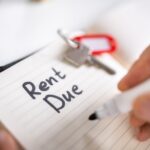Table of Contents (Continued)
Fair Housing Laws and Screening
Handling Maintenance and Repairs: Property managers must comply with federal and local Fair Housing laws during the tenant screening process. These laws prohibit discrimination based on protected classes such as race, religion, national origin, sex, disability, or familial status
- Consistency: All applicants must be evaluated using the same criteria to ensure fairness.
- Reasonable Accommodations: Property managers must make reasonable accommodations for tenants with disabilities, such as allowing service animals even in no-pet properties.
Violating Fair Housing laws can result in legal penalties and damage to a property manager’s reputation, making compliance a top priority.
Automated Screening Tools
Modern property managers often use automated tools to streamline and enhance the tenant screening process. These tools provide quick, accurate data on applicants.
- Background Check Software: Platforms like TransUnion’s SmartMove or RentPrep offer instant background and credit reports.
- Online Applications: Digital application systems ensure accurate data collection and seamless submission.
- Risk Assessment Algorithms: Automated tools can evaluate multiple factors, such as credit, income, and rental history, to generate a risk score for each applicant.
These tools save time, reduce human error, and allow property managers to make faster decisions while maintaining a thorough vetting process.
Importance of Documentation
Proper documentation is critical for protecting property managers and ensuring the screening process is defensible if disputes arise.
- Records of Applications: Keep a file for every applicant, including their application, credit reports, and any communication.
- Written Criteria: Clearly outline tenant requirements, such as income thresholds and acceptable credit scores, to maintain transparency.
- Legal Compliance: Documentation ensures the property manager can demonstrate adherence to Fair Housing laws and other regulations.
Thorough record-keeping provides clarity and protection in case of tenant disputes or legal claims.
Ongoing Monitoring After Move-In
Screening doesn’t stop once a tenant moves in. Property managers monitor tenant behavior to ensure continued compliance with lease terms and property rules.
- Regular Inspections: Periodic property inspections help verify that tenants are taking care of the property and adhering to their lease.
- Payment Monitoring: Consistent rent payments are tracked to identify financial issues early.
- Communication Channels: Open lines of communication allow tenants to report issues, helping managers address problems promptly.
By maintaining oversight, property managers can address potential issues before they escalate, protecting the property’s value and maintaining tenant satisfaction.
Table of Contents (Continued)
Cost Management
Handling Maintenance and Repairs costs effectively is critical for maximizing property profitability. Property managers employ strategies to balance quality and cost-efficiency.
- Preventing Overcharging: Building relationships with trusted vendors prevents inflated pricing for repairs.
- Budgeting: Allocating a portion of rental income for regular maintenance helps manage unexpected expenses.
- Approval Processes: For major repairs, property managers often seek owner approval to ensure transparency.
By carefully managing costs, property managers help owners avoid unnecessary expenses while maintaining property value.
Legal Compliance in Maintenance
Property managers must adhere to local, state, and federal regulations when performing maintenance and repairs. Failure to comply can lead to legal consequences.
- Habitability Standards: Ensuring the property meets basic living standards, such as functioning plumbing, heating, and electrical systems.
- Safety Requirements: Regularly inspecting and maintaining smoke detectors, carbon monoxide detectors, and fire extinguishers.
- Fair Housing Laws: Accommodating reasonable maintenance requests for tenants with disabilities.
Staying informed about legal requirements ensures that all maintenance activities comply with the law.
Technology and Tools for Maintenance
Technology has revolutionized the way property managers handle maintenance and repairs, improving efficiency and tenant satisfaction.
- Maintenance Management Software: Tools like AppFolio and Buildium allow property managers to track requests, schedule repairs, and communicate with tenants and vendors.
- Smart Home Devices: Technology like smart thermostats and leak detectors helps monitor property conditions and prevent costly repairs.
- Digital Inspections: Using mobile apps to conduct property inspections streamlines the process and ensures thorough documentation.
Leveraging technology reduces response times and enhances the overall maintenance experience for both tenants and owners.
Sustainable and Green Maintenance
Sustainability is becoming a key focus in property management, with an emphasis on environmentally friendly practices during maintenance.
- Energy-Efficient Upgrades: Installing energy-efficient appliances, LED lighting, and low-flow water fixtures reduces utility costs and environmental impact.
- Eco-Friendly Materials: Using sustainable materials for repairs and renovations minimizes the property’s carbon footprint.
- Recycling and Waste Reduction: Proper disposal of old appliances and construction materials helps maintain eco-conscious operations.
Green maintenance practices benefit the environment, reduce costs, and appeal to eco-conscious tenants.
Owner Reporting and Transparency
Keeping property owners informed about maintenance activities is essential for building trust and ensuring accountability.
- Detailed Reports: Providing regular updates on completed repairs, pending maintenance, and associated costs.
- Photo and Video Documentation: Sharing visual records of property conditions before and after repairs to maintain transparency.
- Expense Tracking: Offering breakdowns of maintenance costs in financial statements to help owners monitor their investment.
Clear communication ensures that owners remain confident in the management property.



